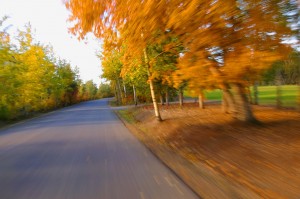Experts from the auto insurance industry are cautioning motorists against the hazards that fall season may bring. Analysts contend that more drivers get involved in accidents during this particular season because of the change in weather and the overall change in road conditions. The start of classes can also affect the safety of passengers and drivers alike.
 Safety experts are telling drivers across the U.S. to practice safe driving especially during the early morning and late afternoon rush. Roads may be filled with school buses and street leading to schools can be crowded with students heading back to school. Motorists must know the different rules and regulations they must abide by whenever school buses are around. For one, drivers cannot pass school buses if their red lights are flashing. Motorists should also be alert especially when approaching school zones and school crossings.
Safety experts are telling drivers across the U.S. to practice safe driving especially during the early morning and late afternoon rush. Roads may be filled with school buses and street leading to schools can be crowded with students heading back to school. Motorists must know the different rules and regulations they must abide by whenever school buses are around. For one, drivers cannot pass school buses if their red lights are flashing. Motorists should also be alert especially when approaching school zones and school crossings.
Getting in an accident can drive insurance costs higher. Even a single incident can convince providers that a policyholder is much more risky to insure. This means that a motorist with a poor driving record can expect to pay for more expensive insurance premiums because of the risk they present insurers.
The fluctuations in the temperature during fall can also cause loss of control for many drivers. Because tire pressure changes dramatically depending on the outside air temperature, sudden fluctuations can make cars more difficult to steer. In some cases, drivers would seemingly lose full control of their vehicles and swerve into oncoming traffic or hit other objects near the road. The best advice, expert say, is to maintain a speed that is easily controllable. Drivers must also avoid jerking the steering wheel too hard to avoid skidding.
Even simple wet leaves can act like ice during cold nights. Wet autumn leaves on the road can transform as slippery as ice especially in the northwest. Motorists unaware of their presence can run over them and skid across the road. Safety experts add that drivers should avoid hitting the road at night if the weather is too cold because this is a good sign of frost on the road and fallen leaves.
Motorists can even start wearing sunglasses more often to shield their eyes from the sun’s glare. Driving headlong into the sunrise or sunset can disorient drivers or blind them temporarily. Analysts also explain that two-thirds of all car accidents involving deer happen during autumn, most particularly the period from October to December.


